Married couples need their alone time, too, whether to run errands or go on the occasional date night. And when a babysitter isn’t available, many usually ask their parents to watch over the kids.
That proved a huge mistake for this man, who entrusted his daughter to his mother. Returning from a night out, he and his wife saw their six-year-old in tears because her grandmother had cut her hair.
When confronted about it, the older woman brushed it off and sternly believed she did nothing wrong. Her reaction pushed her son to ban her from babysitting, leading to more drama.
A woman had her “grandparent rights” revoked after she cut her granddaughter’s hair

Image credits: YuriArcursPeopleimages / Envato Elements (not the actual photo)
According to the young girl’s father, his mother thought she was trying to help





Image credits: Guillaume Issaly / Unsplash (not the actual photo)
The man banned his mother from future babysitting duties, causing family drama




Image credits: TinyPixiex

Image credits: cottonbro studio / Pexels (not the actual photo)
Grandparents are likely unaware that they are overstepping boundaries
As the story showed, the grandmother seemed oblivious to her overstepping boundaries. She genuinely believed she was trying to help and that she did nothing wrong.
As accredited trauma specialist and psychotherapist Tina Chummun tells HuffPost UK, such actions aren’t usually done with malice. Instead, it’s often unconscious, and can turn disruptive if left unaddressed.
But why does it happen, to begin with? According to Chummun, such actions are due to feelings of being “unwanted or irrelevant.”
“[It] can lead them to overcompensate, asserting themselves in ways that make them feel needed but inadvertently encroaching on their child’s parental role,” she explained.
Another reason could be that grandparents are asserting their authority and experience. In the same HuffPost UK interview, psychotherapist Sandhya Bhattacharya explains that they could be thinking, “I know better because I’ve done it before, so let me show you.”
Bhattacharya adds that grandparents may feel a “sense of competition” with their children, which may cause them to overstep boundaries.

Image credits: freepik / Freepik (not the actual photo)
Setting boundaries with grandparents must be direct and firm, but also kind
The author’s reaction was understandable. He and his wife had just returned from a lovely date night and saw their daughter in tears, devastated.
It was within his rights to set healthy boundaries with his mother. However, he may have come on too strongly. In such scenarios, the Gottman Institute recommends a “gentle start-up.”
In a nutshell, this approach is less aggressive and more empathetic. It’s more about reminding grandparents that they can’t do as they please, but doing so in a way that highlights the problem of their actions rather than coming off as accusatory.
However, it is also essential to make grandparents feel that they matter. As Chummun states, there must be a balance between affirming their place in the family while making it clear that certain decisions solely lie with the parents.
“Framing these conversations in a way that acknowledges the grandparent’s value, rather than making them feel dismissed, can help prevent defensiveness and resistance,” she explained.
In this case, a bad haircut will, indeed, grow out. However, the author must also remind his mother that there are boundaries she cannot cross and that consequences may be imposed if something similar happens again.
The author provided more information by answering reader questions
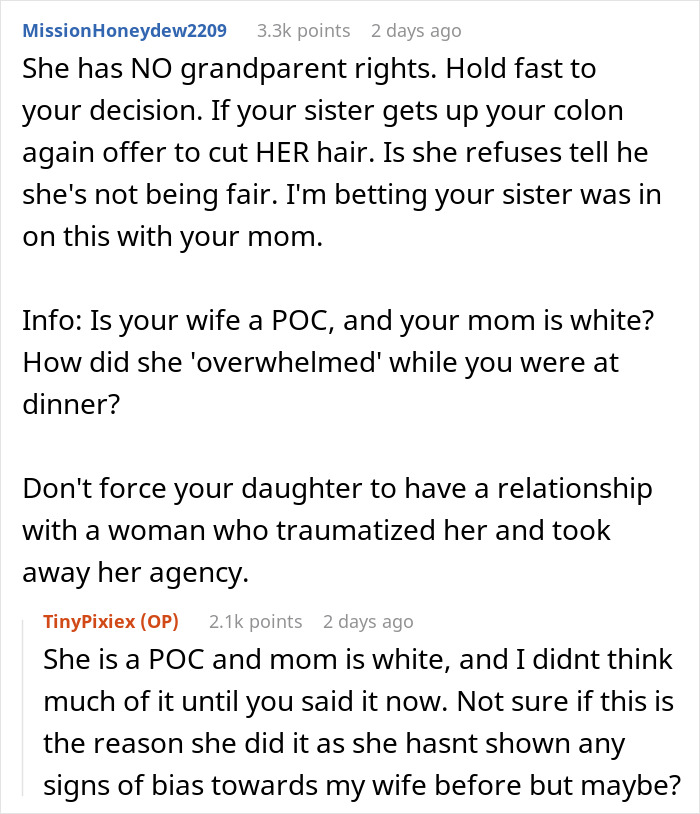
Most people in the comments sided with him, with some suggesting going no-contact with his side of the family


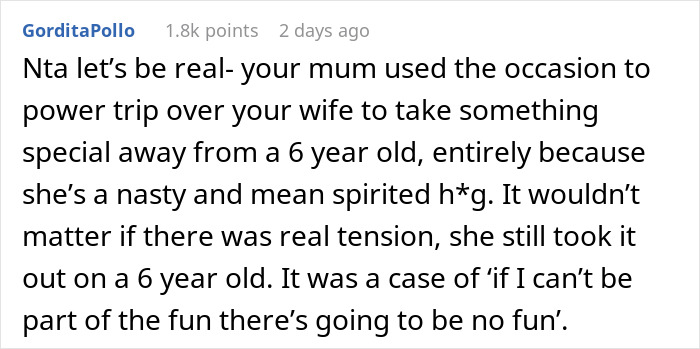

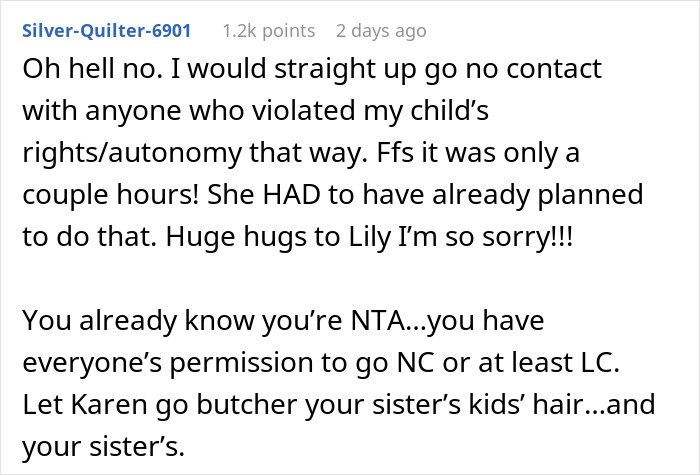
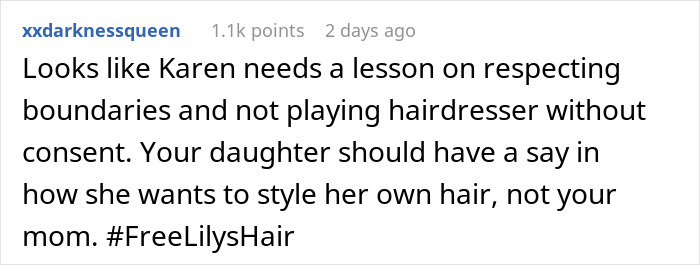

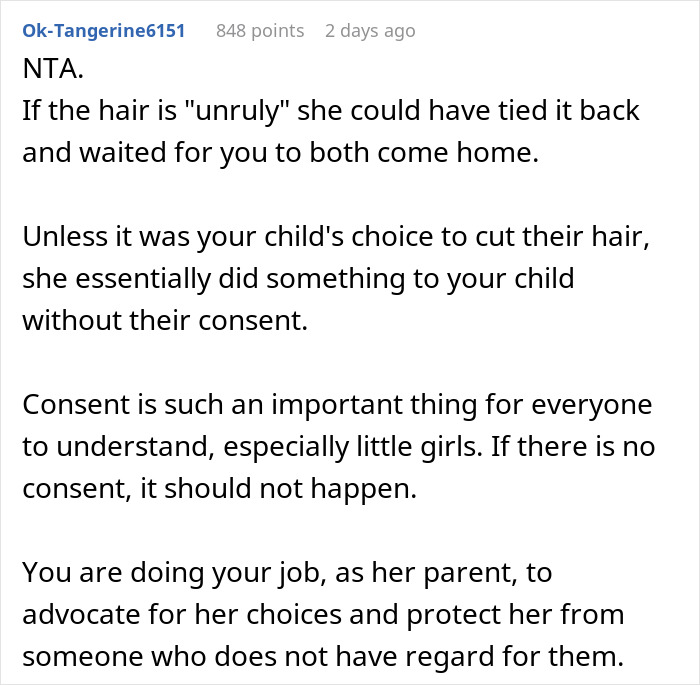
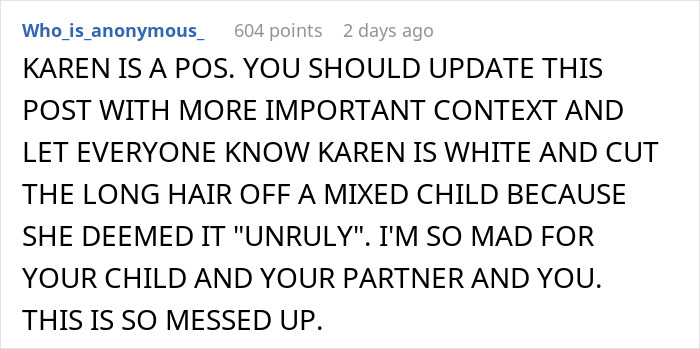




But there were a few who thought he was “being a drama queen”
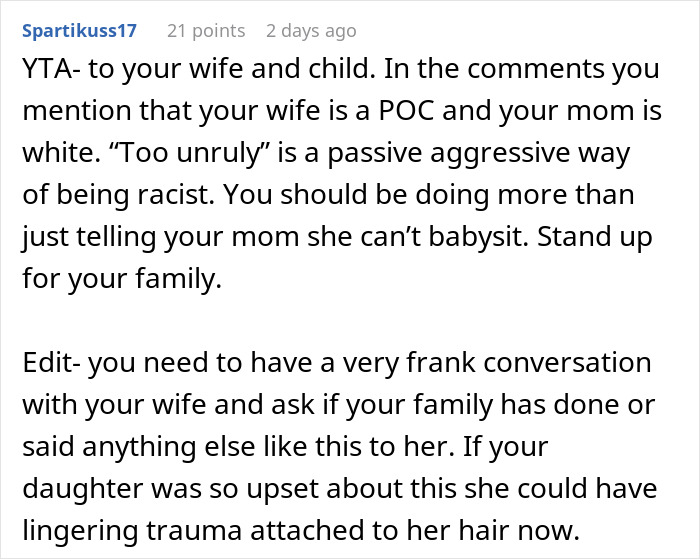













 English (US) ·
English (US) ·